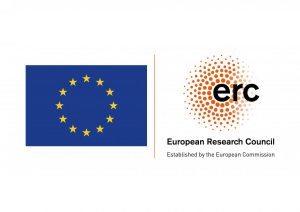IHODP is an Open Source & Open Access Data Platform for ’Medieval’ Arabic Humanities Research. It is being constructed from, and integrates, several interconnected open data projects, including the Mamluk Prosopography Project (MPP), Bibliography of 15th Century Arabic Historiography (BAH) and Corpus: Texts from Late Medieval Egypt and Syria (CORPUS).
IHODP is a flexible, sustainable, user-friendly and multi-purpose solution, integrated in UGent’s IT-environment, an active partner of the semantic web, and allowing for the creation of multiple independent and/or integrated data projects with freely definable multiple user roles, default back up and export facilities, and opportunities to work with various metadata ontologies, annotation tools, and Arabic text corpora.
After a public tender procedure the development of IHODP was awarded to open source developers INUITS (www.inuits.eu) (2017-20). Development happens in a Drupal environment and Symfony2 PHP framework. For full Arabic text indexing and searching the Apache SOLR platform is used, in combination with the Arabic Light10 stemmer. Metadata are stored as RDF data organised along the CIDOC Conceptual Reference Model (http://www.cidoc-crm.org/) and stored in a Virtuoso Database. SPARQL is used for querying the RDF graph, directly, via Drupal UIs, and as an API. The project is funded by the Research Foundation – Flanders (FWO/ Hercules Foundation) and by the European Research Council (ERC CoGr MMS-II). It is a joint project of UGent (Jo Van Steenbergen) and UAntwerpen (Malika Dekkiche).
Mamluk Prosopography Project (MPP)
In the period 2009-14 a relational prosopographical database MP3 was constructed at Ghent University for the study of late medieval Syro-Egyptian political elites, institutions and practices, in the context of a specific collaborative research project on ‘Mamluk’ state formation. In the period 2015-16 new funding was obtained to create from MP3’s Filemaker 12 database a more widely accessible, connected and multifunctional research infrastructure and to expand its textual component and analytical potential. This project is currently known as the Mamluk Prosopography Project (MPP) project.
MPP’s development was being achieved between 2016 and 2020; MPP is funded by the FWO-Flanders (Medium-Size Research Infrastructure), in a joint venture with the ERC Consolidator Grant Project MMS-II. For more information see the MPP page.
Bibliography of 15th Century Arabic Historiography (BAH)
Bah is an online and publicly accessible dataset with the aim to create a comprehensive as possible ‘cultural biography’ for any Arabic literary text produced between ca. 1410 and 1470 (roughly from the execution of sultan al-Nāṣir Faraj in 1412 to the accession of sultan Qāyitbāy and the organization of his court in the period 1468-70) in the localities most strongly touched by the political gravity of the Sultanate’s court in Cairo (i.e. the Egyptian, Syrian, Anatolian and Hijazi domains), which make any kind of explicit or implicit claims to engaging with contemporary historical truths. This includes all the grand narrative annalistic chronographies and biographical dictionaries that have traditionally informed —and continue to do so— most research of Syro-Egyptian society and culture between the 13th and mid-15th centuries. This also includes several other texts, such as panegyrics, individual biographies, treatises and other specimens of Arabic prose and poetry, as well as some more ‘marginal’ historiographical texts, produced in the many peripheries of the Sultanate’s authority.
Bah provides a comprehensive bibliographic survey of these texts, with particular attention to questions of authorship, of textual production, consumption and reproduction, of materiality, and of modern research, in an bi-lingual Arabic – English format.
Corpus: Texts from Late Medieval Egypt and Syria (CORPUS)
Corpus will be a full digital corpus of 82 texts, in a collaboration with the Open Islamicate Texts Initiative (OpenITI) and in an open format that allows for annotation and computational analysis.
For access of beta version of IH0DP and it’s interconnected open data projects click here

